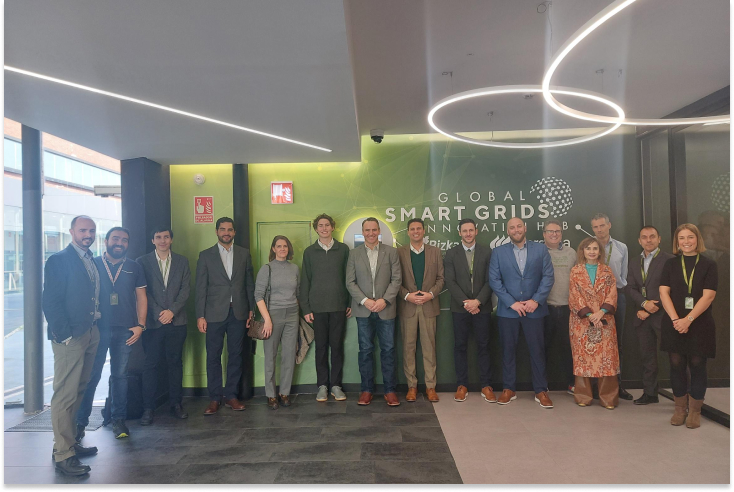Noticias
-
15/03/2024Neoenergia is recognised by the UN for its programme to support victims of gender-based violence Iberdrola, through its subsidiary in Brazil, Neoenergia , has been recognised for its protection, inclusion and support programme for victims of gender-based violence with the Good Practices Award of the Women Lead 2030 movement, promoted by the UN Global Compact Network Brazil. During the ceremony held in New York, Eduardo Capelastegui, CEO of Neoenergia, pointed out that "we promote diversity and inclusion through actions aimed at social contribution. In this way, we stand side by side with our collaborators in the search for an even more inclusive, innovative and sustainable future for all". You can read the full story in the Neoenergia press room page . READ MORE
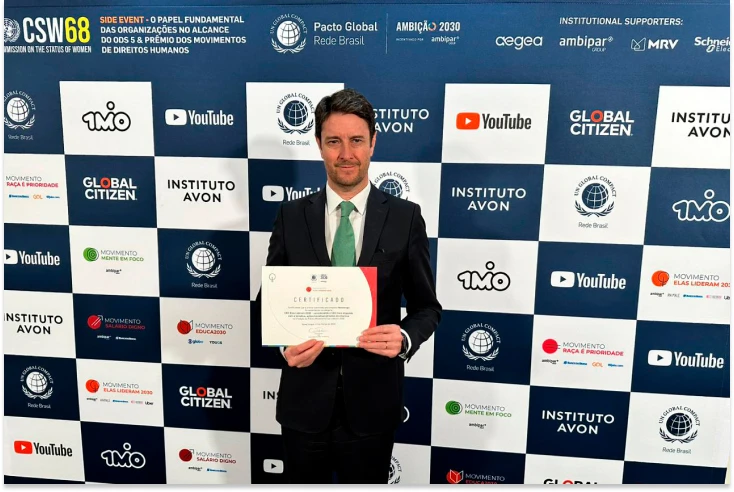
-
14/03/2024Iberdrola and FCC sign an agreement to promote photovoltaic panel recycling FCC Ámbito, a subsidiary of FCC Servicios Medio Ambiente, and Iberdrola, through its PERSEO Venture Builder programme, have signed a strategic collaboration agreement to promote the industrial-scale recycling of photovoltaic panels. Following the successful creation of the company EnergyLoop as a joint experience for the recycling of wind turbine blades , the two companies are furthering their collaboration to develop circularity solutions for waste linked to photovoltaic solar generation . With the industrial photovoltaic panel treatment plant that FCC Ámbito has just inaugurated in Cadrete (Zaragoza) as a reference asset, both companies will carry out – within the framework of this collaboration – the monitoring and potential application of new treatment technologies that may be developed in the short or medium term and improve the industrial recovery capacity of photovoltaic panels. In addition, and with the challenge of the complete circularity of the different materials that make up the photovoltaic panels, we will study the possibility of reusing the materials obtained in the treatment processes as secondary raw materials in the manufacture of new photovoltaic panels. To this end, possible synergies will be assessed with companies in which Iberdrola has a stake, through Perseo, in activities such as the manufacture of photovoltaic panels or the recycling of metals. Other aspects included in the scope of the agreement are the study of calls for European or national public aid that may arise to promote the recycling of photovoltaic panels, either for the promotion of R&D&I or for the implementation of industrial-scale installations. Linked to this activity, FCC Ámbito is leading the PV4INK R&D&I project, financed by the Ministry of Science and Innovation and the European Union's Next Generation funds. This project is aimed at recovering the silver contained in photovoltaic panels and use it in high-value applications. In this way, the rate of recovery will increase and we will also recover a strategic element for the energy transition. In contrast to what is beginning to happen with wind farms , photovoltaic installations still have many years of operation ahead of them. Iberdrola seeks to be ready when their useful life comes to an end, for which this collaboration agreement will provide an ideal positioning. In this same context, Iberdrola is participating in the European RETRIEVE project, whose general objective is to develop innovative and flexible recovery technologies for each main component of photovoltaic panels – especially silicon. On behalf of FCC Ámbito, María Jesús Kaifer, Technical Director and Head of Circular Economy, emphasised that "From the perspective that the energy transition is key in decarbonisation processes, our company considers strategic growth objectives, such as developing comprehensive recycling solutions for materials from the energy transition ". María added that "this strategic agreement is a continuation of our efforts in the search for the best technologies for the recovery of the resources contained in waste in order to incorporate them back into production processes. The recycling of photovoltaic panels is another project that we are tackling together with a leading company in its sector, Iberdrola, in order to join forces to guarantee the circularity of renewable energies". Álvaro Portellano, Head of PERSEO Venture Builder at Iberdrola, commented that "Iberdrola's goal is to recycle all the components of its facilities. We see recycling not as a challenge but as an opportunity. Therefore, we see this new collaboration as a valuable opportunity to contribute to the circularity of new elements of the energy transition, and it expands the scope of our alliance with FCC Ámbito, which already successfully addresses the recycling of wind turbine blades through EnergyLoop". "In 2020, the PERSEO Venture Builder programme was launched to promote the development of innovative industries such as, among others, those related to the circular economy. In this sense, we are excited to combine this objective with the strengths and capabilities of FCC Ámbito – a global leader in waste management – to promote and lead the recycling of photovoltaic panels in the Iberian Peninsula," said Portellano. Aligned with FCC Medio Ambiente's Sustainability Strategy 2050 FCC Ámbito is the subsidiary of FCC Servicios Medio Ambiente specialising in the integrated management of industrial and commercial waste, recovery of by-products and soil decontamination. As a whole, it has a total of 39 treatment centres in Spain and Portugal, with more than 67 processing lines that guarantee the functionality of the facilities. FCC Servicios Medio Ambiente is the FCC Group company that has been providing municipal services and integrated waste management for 120 years, serving more than 67 million people in nearly 5,400 municipalities around the world. In 2023, the company managed 24.7 million tonnes of waste and produced 4.8 million tonnes of secondary raw materials and fuel derived from waste. FCC Ámbito contributes its extensive experience in the recycling and marketing of secondary raw materials for the definition of the operational processes in the development of the projects arising from this alliance. The incorporation of new technologies in this type of project will allow FCC Ámbito to consolidate and position itself as a key player in the country's circular economy processes, a fundamental pillar of FCC Medio Ambiente's 2050 Sustainability Strategy. This Sustainability Strategy consists of a 30-year business development roadmap that integrates very demanding objectives and commitments with high added value for the company and society as a whole, and which are grouped into four lines of action: environmental, social, excellence and good governance. The circular economy – the core of Iberdrola's business model This collaboration responds to Iberdrola's commitment to a sustainable energy model and is part of its PERSEO Venture Builder programme to promote the development of innovative industrial companies working in new areas of electrification and in sectors that are difficult to decarbonise. Iberdrola defines its circular economy strategy as a process that affects its entire value chain, both its own production processes and those of its suppliers and customers. The group prioritises the contracting of companies with environmental management systems and, together with its suppliers, promotes eco-design, the analysis of the life cycle of products, and the use of materials with a low environmental impact. The company also promotes the circular economy by reducing the use of natural resources through its commitment to decarbonisation and electrification, and the more sustainable use of natural resources by promoting the use of more efficient and cleaner technologies and processes. It also encourages research to develop solutions for waste use and promotes responsible consumption through environmental awareness programmes. Since its creation in 2008, PERSEO has invested €100 million in start-ups that develop innovative technologies and business models, focusing on those that improve the sustainability of the energy sector through greater electrification and decarbonisation of the economy. The programme has focused its actions on the analysis of business opportunities and technological collaboration with start-ups and emerging companies around the world. Through PERSEO, the Venture Builder programme was launched in 2020 with €40 million for the creation of new business models aimed at supporting electrification in sectors that are difficult to decarbonise and the development of circular economy solutions, among others. READ MORE
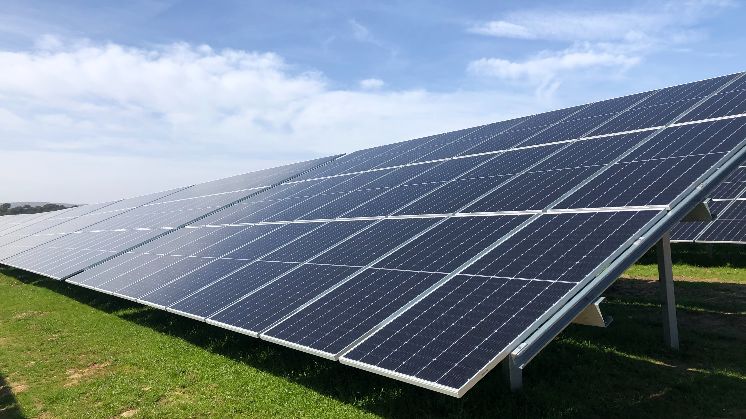
-
14/03/2024Neoenergia launches bid to acquire 6.89% of its Brazilian subsidiary Cosern Iberdrola's Brazilian subsidiary Neoenergia has launched a bid to acquire 6.89% of the capital of its subsidiary Neoenergia Cosern. As the company has informed the Brazilian Securities Commission (CVM, by its Brazilian acronym), the company intends to acquire both ordinary shares and Class A and Class B preferred shares. At present, Neoenergia already owns approximately 93.11% of the distributor's share capital. This price represents an investment of 163 million Brazilian reais – around 30 million euros at the current exchange rate. The bid is for the acquisition of all outstanding shares, which amount to around 11.5 million shares. The company will pay 13.73 Brazilian reais per share for the ordinary shares and 15.10 Brazilian reais for the Class A and B preferred shares. The deal, like the one announced in 2022 for its subsidiary Neoenergia Pernambuco, will help simplify the shareholding in Neoenergia's distribution companies, and is expected to close by the end of the year. The offer, which has yet to receive regulatory approvals, is conditional on acceptance by at least two-thirds of the target shareholders. Neoenergia Cosern was created in 1961 and was under the control of the State Government until 1997, when privatisation took place. Since then, it has maintained a continuous evolution in the quality of service offered to the inhabitants of the state of Rio Grande do Norte, always seeking to improve the relationship with its customers and contribute to the development of the state. The company is present in 167 municipalities in Potiguares, has a concession area of 53,000 square kilometres and serves 1.5 million customers (3.5 million inhabitants). READ MORE
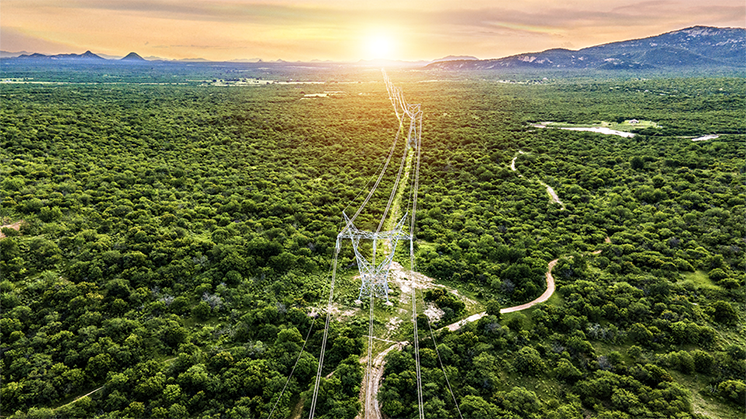
-
13/03/2024Iberdrola to build its Fifth Wind Farm in Illinois, US Iberdrola, through its US subsidiary Avangrid, is going to install what will be its fifth onshore wind farm in the state of Illinois, where it has already been operating farms for more than 15 years. Osagrove Flats will have 34 turbines with a total capacity of 153 MW, which will enable it to generate 550,000 MWh of clean energy per year, equivalent to the consumption of 50,000 US homes. Around 300 jobs will be created during the construction of the park. In addition, the long-term operation and maintenance of the park will also generate permanent jobs in the area. You can read the full story ion our Avangrid Press room page READ MORE
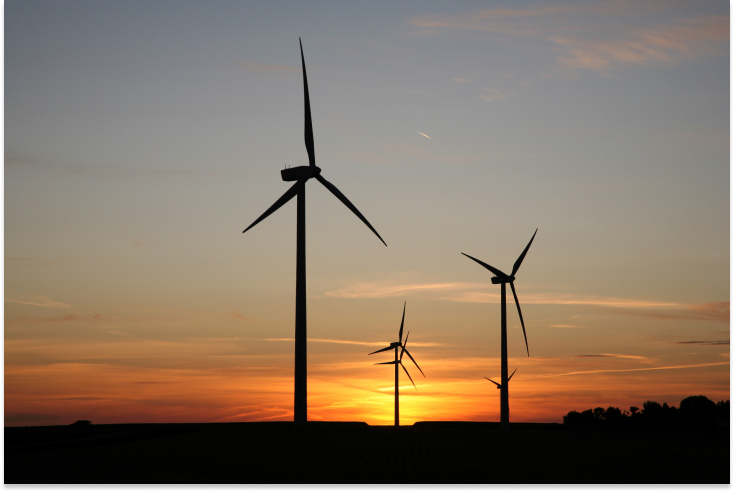
-
12/03/2024Iberdrola tests Antecursor II robot at its Villarino photovoltaic plant Iberdrola and Arbórea Intellbird, the Spanish based technology company that created Arachnocopter and Antecursor I, are working at the Villarino solar plant (Salamanca), which is already operating at full capacity, with the robot Antecursor II*. It is capable of remotely and sustainably managing the photovoltaic plants . This novel robot operates autonomously anywhere in the world thanks to the satellite coverage of the Starlink network and does so by running solely on renewable electrical energy. Arbórea Intellbird, which provides services for the digital inspection of Iberdrola's wind turbine blades, was promoted through Iberdrola's start-up programme – PERSEO – for eight years with the aim of promoting its development and consolidating it in the sector. On this occasion, the company has gone a step further and has developed this new platform for autonomous inspection of solar plants. This platform makes it possible to carry out an inspection process to detect thermal anomalies. It can be not only in the upper part of the panels, as drones do, but also, in the case of the Antecursor II, simultaneously in all their lower structures, such as clips, fuse holders, cable clamps or cabling, which escape aerial view. The robot's inspection autonomy far exceeds that of any other system, at over 30 hours. This allows inspections of the photovoltaic infrastructure to be carried out without requiring the intervention of any human operator. This is achieved thanks to a set of high-resolution thermographic sensors that continuously take thousands of measurements of the installation every second. This large mass of digital data is processed on board by an AI process, also patented by Arbórea, based on a combination of hardware and smart software developed by the company. The system detects anomalies, evaluates them according to plant conditions and reports an early identification of potential hot spots, all in real time. As a result, the technicians of the company that owns the installation receive an e-mail on their mobile phones with the alert, the position of the anomaly and a thermography with the reference values. For this purpose, the robot continuously and regularly goes through the facility, monitoring the correct operation of the panels and the electrical circuit, processing the information on board, detecting anomalies and automatically reporting any value that could lead to the deterioration of the elements. Continuous remote monitoring of the robot's vital signs allows any irregularities to be detected early and all systems to be continuously updated, no matter how remote the location in which they operate. Antecursor II has an integrated vegetation clearing system based on aeronautical materials to create a fine mulching of the vegetation and does so cleanly and very quietly. This 100% electric vegetation management avoids soil pollution by oils or fuels, greenhouse gas emissions, the risk of fire associated with hot engines or the breakage of panels due to the projection of stones from traditional disc or filament clearing systems. This continuous autonomous cutting encourages the growth of ground cover species, thus achieving greater control of dust, which is so harmful when deposited on the panels. Creating a layer of basal vegetation avoids desertification by runoff and favours the maintenance of living soils and therefore the maintenance of biodiversity in the photovoltaic plants. *The antecursores were an elite troop created by Caesar to move in advance of the Roman legions and decide the way forward. READ MORE
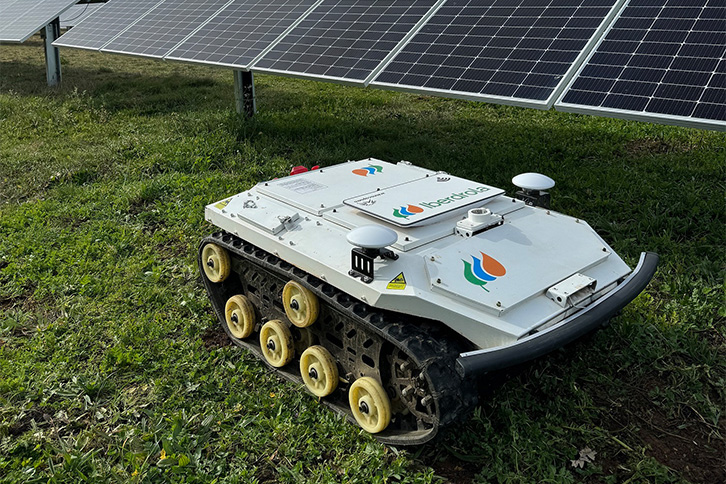
-
11/03/2024Iberdrola obtains the highest sustainability rating from Fitch The rating agency Fitch Sustainable has assigned Iberdrola a 'Green' rating - the highest in green transition. According to the agency's assessment, the company has a credible transition plan and has already pivoted a large part of its business model towards "greener" activities. Iberdrola has ambitious targets, as it aims to reach zero-net Scope 1, 2 and 3 emissions before 2040, significantly earlier than the more widely used target set by its peers - by 2050. The company has committed to reduce absolute emissions across the scopes by 90% by 2039 from a base year of 2020. Regarding interim targets, Iberdrola has committed to reduce its absolute Scope 1, 2 and 3 GHG emissions by 65% by 2030 from a base year of 2020. Iberdrola is taking steps to address the energy transition by investing heavily in renewable electricity production. The vast majority of its investment goes to activities aligned with the EU taxonomy and other activities that are considered green according to this assessment. Iberdrola has thus earned Fitch Sustainable's highest rating according to its methodology, which shows ratings ranging from 'Black', the lowest, to 'Green'. The intermediate positions are 'Brown', 'Light Brown', 'Olive' and 'Light Green'. Committed to the green transition Iberdrola now has a renewable capacity of over 42,000 MW - specifically, it stands at 42,187 MW - after adding some 3,250 MW of new capacity in the last 12 months. In doing so, the company continues to drive self-sufficiency, electrification and, thus, greater energy and economic efficiency for all consumers. Given its commitment to renewable energies, the Group generates 100% emission-free energy in countries such as the United Kingdom, Brazil, France, Italy, Germany, Poland, Portugal, Greece, Romania and Bulgaria. Emission-free production reaches 87% in Spain. In 2023, the group continued to reduce its emissions to just 55 grams CO2 /kWh in Europe, about 80% lower than its peers. Thanks to its renewable production, which is close to 80 billion kWh, 6.3% more than the previous year, the company hasprevented nearly 14 million tonnes of CO2 into the atmosphere in 2023. READ MORE
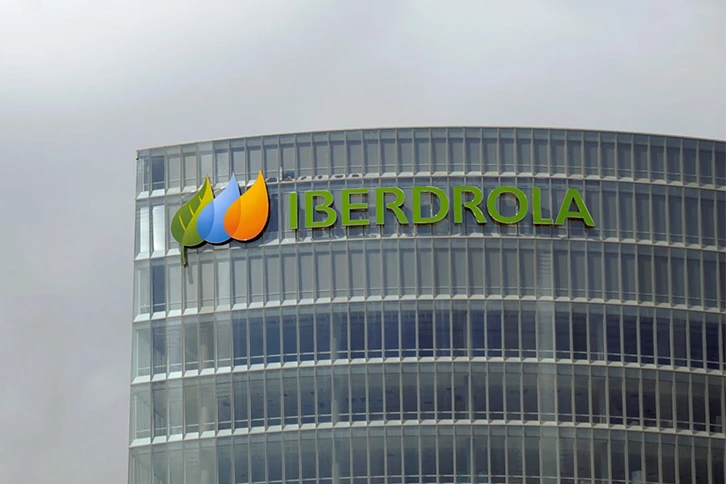
-
11/03/2024Iberdrola gets the green light for Valdecañas (Spain) pumping project The Valdecañas pumping project (in Cáceres) received administrative authorisation from the Ministry for Ecological Transition and Demographic Challenge. This will improve the Tagus River's energy potential by seasonally storing the system's surplus energy in the Valdecañas reservoir. It will have a total power output of 275 MW and includes a battery system hybridised with the gensets. The battery has a capacity of 15 MW and when fully charged can reach 7.5 MWh of stored energy. The battery and hydraulic units together have an energy reserve of 210 GWh – equivalent to 5.2 million electric vehicle batteries. The capacity of a reversible pumped-storage power plant allows large amounts of energy to be stored and released quickly, which facilitates balancing the electricity grid as the plant acts as a "giant battery" – storing potential energy in the form of water in the upper reservoir. In this way, energy can be stored when there is excess production and retrieved when needed, operating as a "closed loop" with no water consumption. This is providing "large-scale" resilience to demand-generation fluctuations and a long service life. Iberdrola stressed that this project has a minimal impact, as the scope is exclusively electromechanical and does not require the construction of any civil infrastructure. It makes use of existing infrastructure and the Valdecañas and Torrejón reservoirs – without changing operating levels. In addition, there is no need to build new transmission network lines, as the existing ones are used. The implementation of this pumping project will reduce 200,000 tonnes of CO 2 per year – thanks to the greater integration of renewables. In addition, it will create 165 direct jobs and another 500 indirect jobs – promoting skilled employment. It will also have a major impact on the economy of the area, with the participation of small and medium-sized enterprises in the province of Cáceres, which will also help to fix the population. Leading-edge technology The pumping project uses cutting-edge technological solutions by using a hybrid battery system allowing rapid start-up of the units in pump mode, as well as optimising the capacity to regulate generation or demand for the integration of renewable energies into the electricity system by combining the rapid response of the battery with the energy firmness of the turbine. Pumped hydro generation at Alcántara This pumping is part of Iberdrola's commitment to hydroelectric storage. In the Tagus basin, the project for the construction of a pumped hydroelectric generation facility called Alcántara II, with 440 MW of power, is also in the pipeline. Along the same lines, Iberdrola has commissioned the Gouvaes Gigabattery (Portugal) with a capacity of 880 MW and a storage capacity of 24 GWh. Pumping has also been recovered at the Valparaíso hydroelectric plant (Zamora) with a capacity of 68 MW and a storage capacity of 1 GWh. In addition, work is scheduled to be completed this year on the Santiago Jares hydroelectric plant, which will recover the flexibility of a 50 MW and 3 GWh pumping capacity. You can read more news about Iberdrola España in its Communications Room. READ MORE
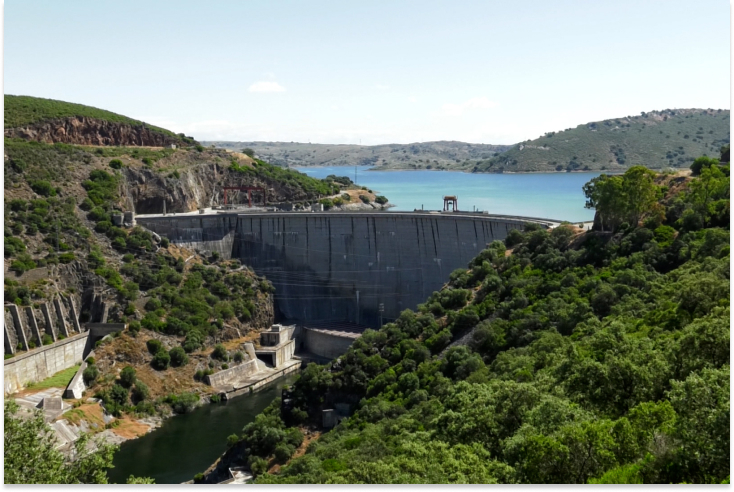
-
07/03/2024The U.S. company Quanta Services visits Iberdrola's Bilbao Hub A group of representatives of the U.S. company Quanta Services has visited Iberdrola's facilities in Spain . Among the visits, the one to the Basque company's Global Smart Grids Innovation Hub in Bilbao stands out. The GSGIH is Iberdrola's global headquarters for innovation in smart grids. During the visit, Quanta Services representatives were accompanied by Iberdrola's Global Purchasing Management and Avangrid, the US subsidiary of the Iberdrola Group. Thus, they were able to learn first-hand about the smart grid innovation projects being developed at Iberdrola's Hub in the Biscayan capital in order to continue advancing in decarbonization. In this sense, electricity grids have a fundamental role to play in driving the energy transition. The North American company Quanta Services builds power lines and installs fiber optics, among others, in the Americas. READ MORE
